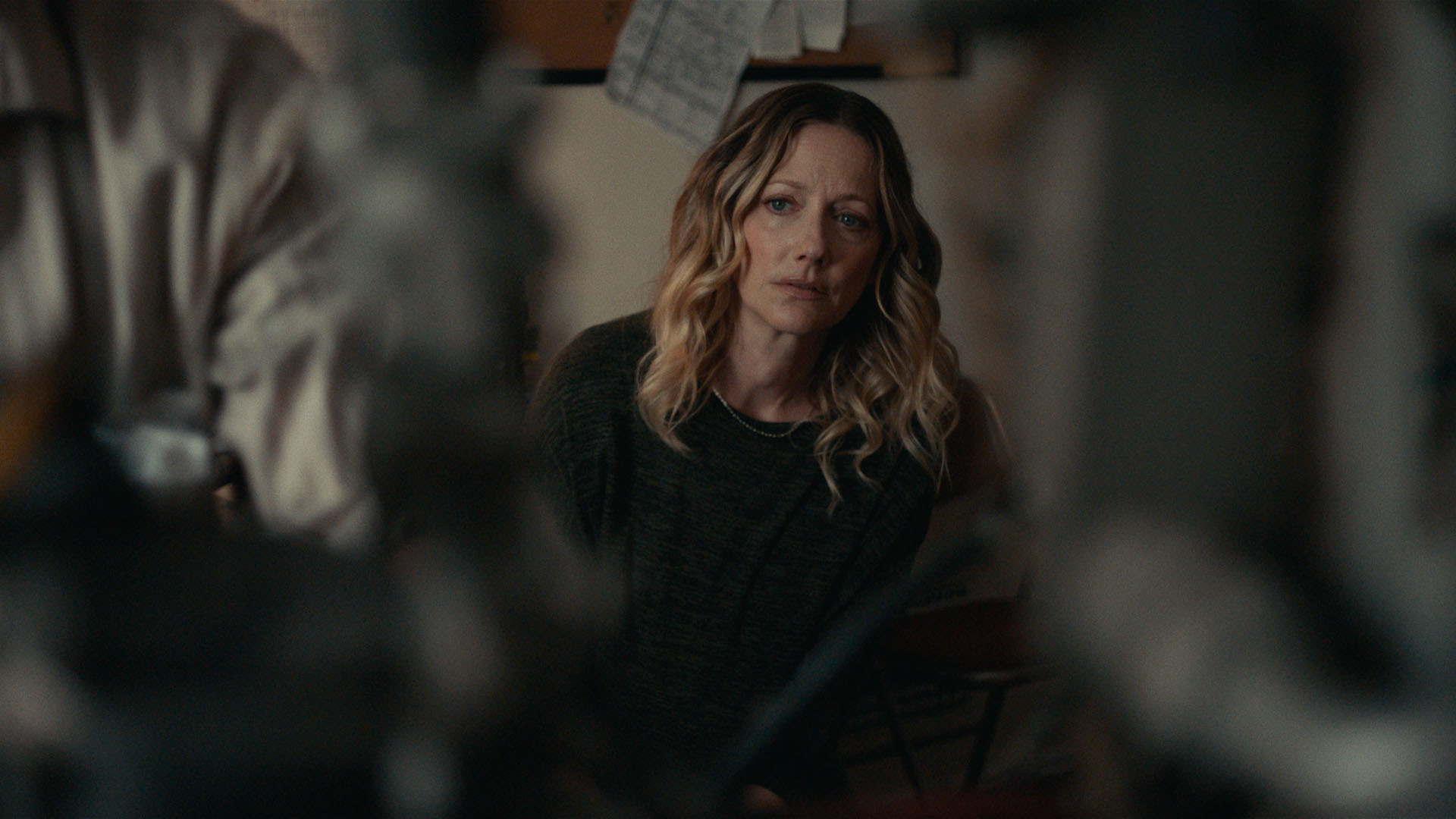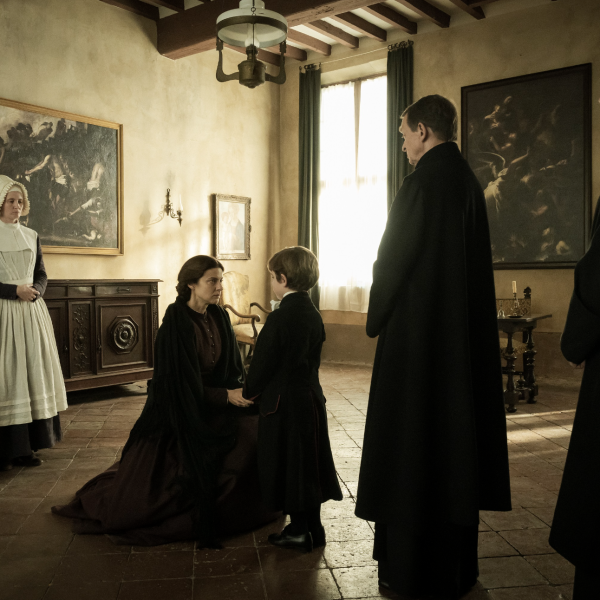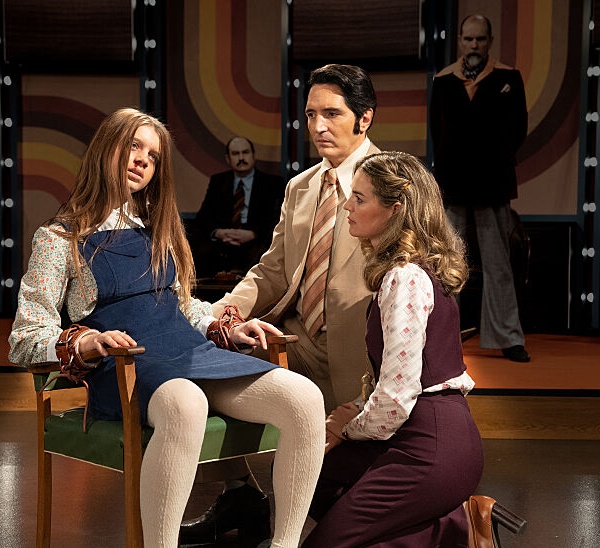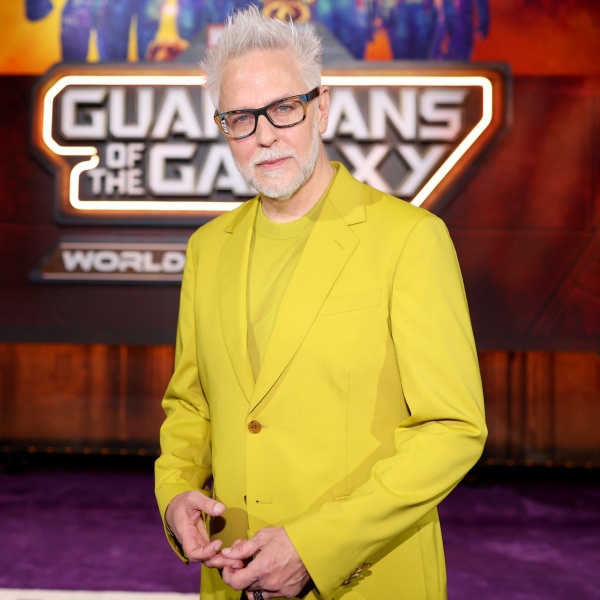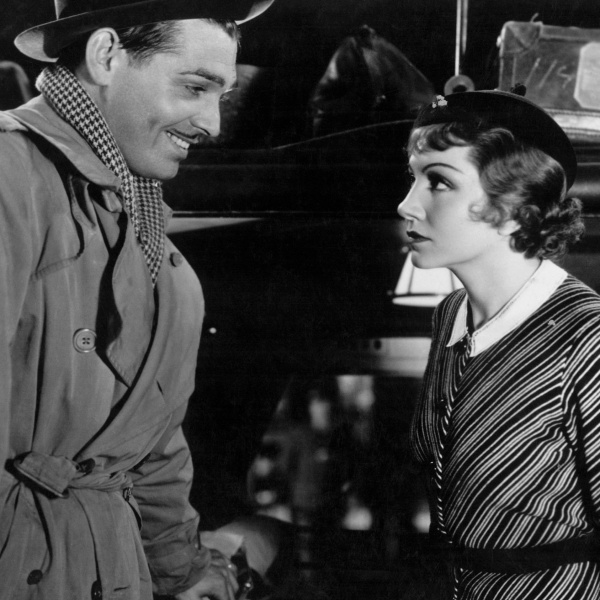Judy Greer‘s iconic career has spanned from “13 Going on 30” to the revamped “Halloween” franchise, proving the actress can delicately balance comedy, horror, and even a certain flavor of signature detachment onscreen. Yet, somehow, the time travel logic of 2004’s comedy “13 Going on 30” makes more sense than the kind at hand in “Aporia,” the latest Greer vehicle that attempts to marry scraps from Greer’s recent haunting performance as a grieving mother in recent festival premiere “Eric LaRue” and repurposes her masterful tears into a bland sci-fi drama that asks too many unanswered questions about morality, mortality, and the price of happiness.
Greer stars in the film as Sophie, a widowed single mother who lost her scientist husband Malcolm (Edi Gathegi) in a drunk driving accident. She is left to care for their 11-year-old daughter Riley (“This Is Us” alum Faithe Herman), with the pre-teen acting out at school and Sophie feeling helpless… so helpless, in fact, that she is open to the idea of testing a sketchy-looking so-called time machine that her husband’s friend Jabir (Payman Maadi, played with over-the-top Tommy Wiseau inflections) built.
That machine, which looks like a remnant from Doc’s garage in “Back to the Future,” comes with some unexpected caveats: It can target and murder a person at a specific time in the past. Sophie enlists Jabir’s help to save Malcolm and kill the drunk driver before he can get behind the wheel. Enter: a garage-sale amount of aluminum, rusted-over pipes, and some weird accordion thingy that comprises an unimpressive and janky time machine.
A flick of a switch sets Sophie’s world straight and she can’t remember the last eight months of her life now that Malcolm is alive. Soon, she’s stalking the driver’s own widow to make sense of just how deep the repercussions of her actions go. (Read: Pretty deep, obviously.)
“Aporia,” a title that references the logical impasse of the existence of the machine itself, is written and directed by Jared Moshé (“The Ballad of Lefty Brown”). The film recently made its world premiere at the genre-focused Fantasia Festival, but offers few original additions to the sci-fi subgenre of time travel.
There’s scattered nods to the logic of other recent entries, from “About Time” and “Safety Not Guaranteed,” to “Premonition” and “Looper,” but “Aporia” only hints on something fresh when it reveals that the time-travel subject is actually the machine’s co-inventor: Malcolm knows the power of what he crafted with Jabir. When Sophie tells Malcolm early on that she used the machine to essentially bring him back from the dead, the couple have to grapple with the weight of Sophie’s decision.

The film’s script doesn’t have the emotional complexity to bolster emotion toward Sophie and Malcolm and their tangled predicament. The duo, along with Jabir, compulsively use the machine to meddle with the past (and kill people, let’s not forget), but only their own pasts.
The tiresome twist becomes more flimsy when paired with Jabir’s ravings about what this level of power could mean for the world (although we never see that impact since the group only uses the machine for their own selfish ends). Even young Riley becomes collateral damage; it’s clear that Sophie and Malcolm have absolutely no idea what they’re doing when playing God.
After enduring so much talking and debating and simply watching Sophie and Malcolm spin through their predicament, it all stumbles toward a limp conclusion that reads as Moshé’s interpretation of the final scene of Christopher Nolan’s “Inception.” It has the unfortunate effect of reminding us that the film adds nothing new to mind-bending time-travel cinema.
Grade: C-
Well Go USA Entertainment releases “Aporia” in theaters on Friday, August 11.
